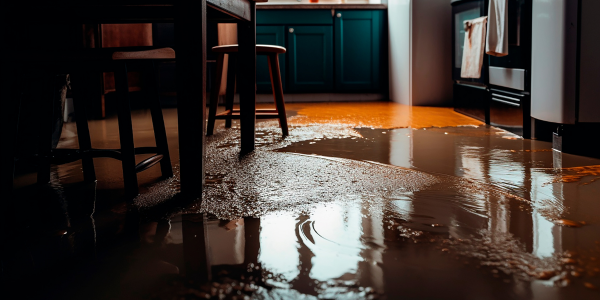You have received your mortgage offer; this is the confirmation that your lender has approved your application and is happy to lend you the money required to purchase your new home. Congratulations!
As a condition of your offer, your lender will require you to have suitable buildings insurance in place.
Now is the best time to start to think about getting your insurance sorted.
In this article, we are going to run through everything you need to know about home insurance when buying your first home, moving house, or remortgaing. Let’s get into it!
What is buildings insurance?
Buildings insurance covers the structural elements of the property and its permanent fittings, such as the roof, walls, outbuildings and fitted kitchens and bathrooms. Usually, it covers damage caused by extreme weather conditions and storms, floods, fires, falling trees, subsidence, vandalism and theft.
Depending on your policy, buildings insurance can also cover accidental damage, emergency call outs, legal cover and the cost of alternative accommodation if you can’t live in your property after an insured event.
Do I have to have buildings insurance?
There is no legal obligation to purchase buildings insurance. However, for anyone arranging a mortgage, buildings insurance is required as a condition of the mortgage. Additionally, obtaining buildings insurance may be one of the conditions of the sale before exchanging contracts.
Your home is likely to be the biggest investment you will ever make, so do not take the risk of not having insurance.
Do I need buildings insurance on exchange of contracts?
Once you have exchanged contracts, the property is your responsibility, so you should have insurance in place from the exchange date, regardless of whether you have moved in or if someone else is living in it.
This means that anything that happens to the property between the exchange date and completion date will be your responsibility to fix. Imagine how you’d feel if you had to pay out of your own pocket for damage that was caused before you even moved in!
As we’ve mentioned above, having adequate buildings insurance may be one of the conditions of the sale in your contract. This is a standard Condition of Sale, which is widely used by solicitors across the UK, and could mean that failure to insure your building at time of exchange could cause delays and even lead to the entire sale falling through.
Your solicitor might ask you for proof that the property is insured. This is because the usual legal terms, suggested by the Law Society in the Standard Conditions of Sale (5th edition), state that the buyer is responsible for arranging building insurance from the time of exchanging contracts.
Do I need building insurance if I am a leaseholder, or is the freeholder responsible for this?
Unfortunately, this is not a black or white answer. It depends on your lease. Some freeholders, especially those of flats or apartment blocks, purchase buildings insurance for the entire property, which is subsidised by the leaseholders through the service charge.
In other circumstances, though, the freeholder may request that the leaseholder buys the building insurance. Make sure you check your lease, contact the freeholder or your solicitor and get the answer in writing. Make sure that this is done early enough that you will be able to get insurance in place for when you exchange contracts if this is necessary.
Do I need buildings insurance if I have purchased a new build?
Purchasing a new build or an off-plan property, your home will usually come with a warranty that will cover any repairs, defects or structural issues for a specified amount of time. This will not cover for damage caused by perils such as a fire, storm or flood.It is still important that you purchase buildings insurance to cover for damages caused by these unexpected events.
Buildings insurance is usually required from the completion date for new build homes, rather than the exchange date as with other home purchases. Be sure to check this information with your solicitor.
Can I get a temporary insurance policy to cover me for the period between exchange and completion?
The difficulty with obtaining insurance before you legally own the property, is that this isn’t a standard option offered by most companies, especially when obtained through a comparison site. By accidentally failing to disclose the full situation to insurers, many policies can unfortunately become void, leading to claims being turned down.
It is possible, however, to obtain a specialist temporary policy to cover you during the period between exchanging contracts and completing the purchase. This type of insurance is often referred to as “exchange of contracts insurance” or “bridging insurance.” It provides coverage specifically for the interim period when you’re legally obligated to the property but haven’t completed the transaction yet.
This temporary insurance can protect you against various risks, such as damage to the property or liability for accidents that may occur during this time.
If you plan to complete and move in within 60 days of the exchange date, most standard insurance policies will be adequate; however always make sure you check the policy wording in full.
When should I start looking for buildings insurance?
To combat the stress of searching for an adequate insurance policy on the day of exchange, it is worth arranging your policy in advance. Most insurers offer the option to choose a start date in the future so that you have buildings insurance ready for when you’ve exchanged.
Once you know the date of your exchange you will be able to arrange cover to start on that day. Make sure you give yourself time to research different policies and compare quotes so that you are able to get cover that suits your unique needs.
How do I arrange buildings insurance before I exchange contracts?
In order to arrange buildings insurance before you exchange contracts, there are a few pieces of information that you’ll need to know,this information includes:
- When your home was built
- If it’s made from standard materials
- If it has suffered from cracks, subsidence or ground movement
- If the property is close to tall trees or water
- If it has been flooded in the past
- The number of bedrooms and bathrooms
How Nest GI can help
At Nest GI, we offer residential, landlord, commercial and non-standard building insurance quotes that have been provided through Defaqto 5 star rated insurers.
Contact us today to speak to one of our trained advisers and discover how we can help you.








